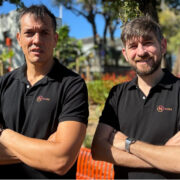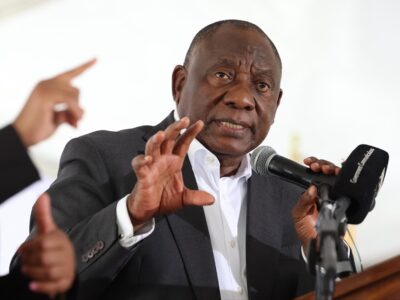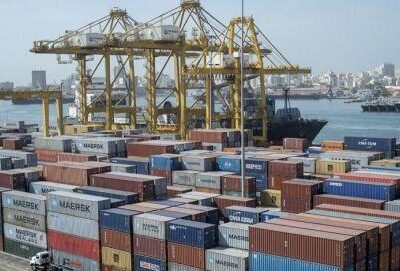
This article is sponsored by Mastercard
With the rapid transformation of a dynamic digital landscape, the key to adding value is often about how companies are adapting and innovating to meet the changing needs of businesses and consumers.
By combining cutting-edge technology with strategic partnerships, Mastercard is driving digital transformation across Africa, empowering businesses and fostering financial inclusion. It’s something that Mastercard has done well over many years.
And in Africa, this journey has been a particularly exciting one. Not only because of a young dynamic population and an appetite for digital, but because of how African merchants and communities have embraced technology to grow and thrive, even leapfrogging global trends in the process.
“Technology is a wonderful thing. It can make life easier, simpler – and present more possibilities than we’ve ever considered before. At Mastercard, we’re constantly looking at how we can deploy the latest technologies, innovate in new ways, and build on what there is, to keep making transactions simpler, safer and more seamless,” says Dimitrios Dosis, President Eastern Europe, Middle East and Africa, Mastercard.
Digital commerce has always tussled with the dilemma ofsecurity versus experience: if you want to make transactions more secure, the user experience is often sacrificed, or vice versa. But technologies like tokenization are now optimizing both security and the experience of transacting, while AI is great at identifying patterns, detecting fraud and personalizing the experience or offering.
Then there’s speed. Getting things done faster to get to an outcome quicker. The need for immediacy rises as economies modernize, and in commerce, this is particularly relevant. In commerce, speed means quicker payments, and quicker growth, so no wonder that the real-time payments have been such a game changer.
A real future of African firsts
In a major new development, Mastercard has launched real-time card payments – and it has chosen Africa for its global launch. South Africa is set to become the first country in the world to benefit from this, ensuring same-day payouts for merchants, along with more control over their funds.
“Instant and secure payments can act as a multiplier to help businesses and economies thrive,” says Dosis. “It gives more visibility and improves liquidity. This is often just what businesses need to expand and gain confidence. And for the wider economy, this velocity of money in the ecosystem can drive growth and innovation in other areas too.”
Mastercard will enable this landmark rollout through product innovations, network enhancements and strategic partnerships, like the one with ACI, which will empower acquiring banks in South Africa to quickly and easily adopt real-time transaction processing standards.
The benefits of real-time payments go beyond speed. It enhances precision, improves transparency and provides certainty across the landscape. It is the sustained implementation of this type of innovation that will contribute to Africa’s economy in future.
Expanding technology infrastructure
But payments innovation doesn’t happen in silos. It needs infrastructure, standards, frameworks and interoperability. Building on the existing technological infrastructure in Africa is a big part of what drives progress – and will drive future progress – in payments and digital commerce.
“That’s why Mastercard is also actively engaging with governments as infrastructure-build partners for locally relevant technologies. Governments want to look beyond today towards tomorrow. They’re focused on how to improve citizen wellbeing and how to support local commerce, in ways that work for Africa. They have strong ambitions and value the mix of global technology expertise Mastercard offers, alongside localization that is contextualized and meaningful for Africa,” Dosis adds.
As part of this effort, Mastercard late last year announced the completion of significant new technological infrastructure investment in South Africa to enable local processing, reduce latency and drive further modernization of the local payments industry. This is in line with the National Payments System Strategy Vision 2025 of the South African Reserve Bank (SARB), which underscores the importance of evolving payment systems to meet the needs of people and businesses to drive financial inclusion.
And not only in South Africa. In Ethiopia, Kenya, Nigeria and beyond, African markets are setting goal-driven plans in motion to tap into the potential of a growing digital economy. Infrastructure, innovation and wider inclusion are helping African markets to compete on a global scale, while meeting the needs of people on the continent.
Sustained momentum for digital commerce is multi-pronged
Dosis reiterates that a healthy digital commerce ecosystem depends on digital acceptance being simple, straightforward, secure and accessible – while also providing choice. “Furthermore, there is the reality that continued digitization of the supply chain is making it simpler and easier for more people and businesses to join, interact, transact and benefit. How a merchant gets paid, is often how they want to pay suppliers. And once they’re digital, it’s like all the pieces suddenly move into a much more cohesive pattern. Merchants can get access to a single platform that digitizes their entire business, including inventory management, ordering, and qualifying for easy financing.”
A great example is Mastercard’s collaboration with the B2B commerce platform, Boost, to provide digital payment wallets and embedded supply chain finance to empower and expand small businesses in the Fast-Moving Consumer Goods (FMCG) sector in Nigeria, Ghana, Kenya, Egypt and Senegal. Start Path, Mastercard’s start-up engagement program, recently also welcomed Nigerian start-up Duplo, a fintech that makes it easier for African businesses to pay each other.
Traditional methods for B2B payments are often slow and inefficient, and Mastercard is modernizing this process through the provision of digital invoices, automated reconciliation and swift, reliable cross-border payments. The latter is something that partners like Safaricom, Paypay, and Access Bank Group are providing with Mastercard infrastructure, while advancing its ability to support merchants in accepting digital payments.
Partnering for scale
For Mastercard, the process of innovating in tech, enabling with tech, and empowering through tech – is just one part of how to provide tangible impact for people and businesses. The other part happens through partnership and collaboration, thereby connecting global expertise, local capabilities, and reach.
“One of the most important considerations for Africa and the growth of a sustainable inclusive economy, is scale. An innovation or solution can do wonderful things, but if it doesn’t scale, it doesn’t matter. That’s why it’s critical that we empower the enablers in Africa – local governments, fintech companies and start-ups, as well as telcos,” Dosis continues.
Along with the African Development Bank, Mastercard is a co-chair of the MADE Alliance in Africa for ‘Mobilizing Access to the Digital Economy’. It will extend digital access to critical services to 100 million individuals and businesses on the continent over the next 10 years.
“We’re committed to being a trusted technology partner for Africa. The inherent potential across the continent is extraordinary. It’s got a young population with an appetite for digital, a vibrant and diverse merchant community, and resilient approach to success. I believe that Africa will continue to grow and prosper, benefiting more Africans than ever before. After all, by 2075, one-third of the world’s population will be African. So now is really the time to drive digital infrastructure and enable the enablers that can scale financial access and foster economic growth. It’s the chance to be part of a positive transformation that will both inspire and benefit future generations,” concludes Dosis.
Africa is changing. So too are its people and businesses. For Mastercard, the opportunity is in connecting these changes with powerful value exchanges, that can power economies and empower Africa’s people.









Comments